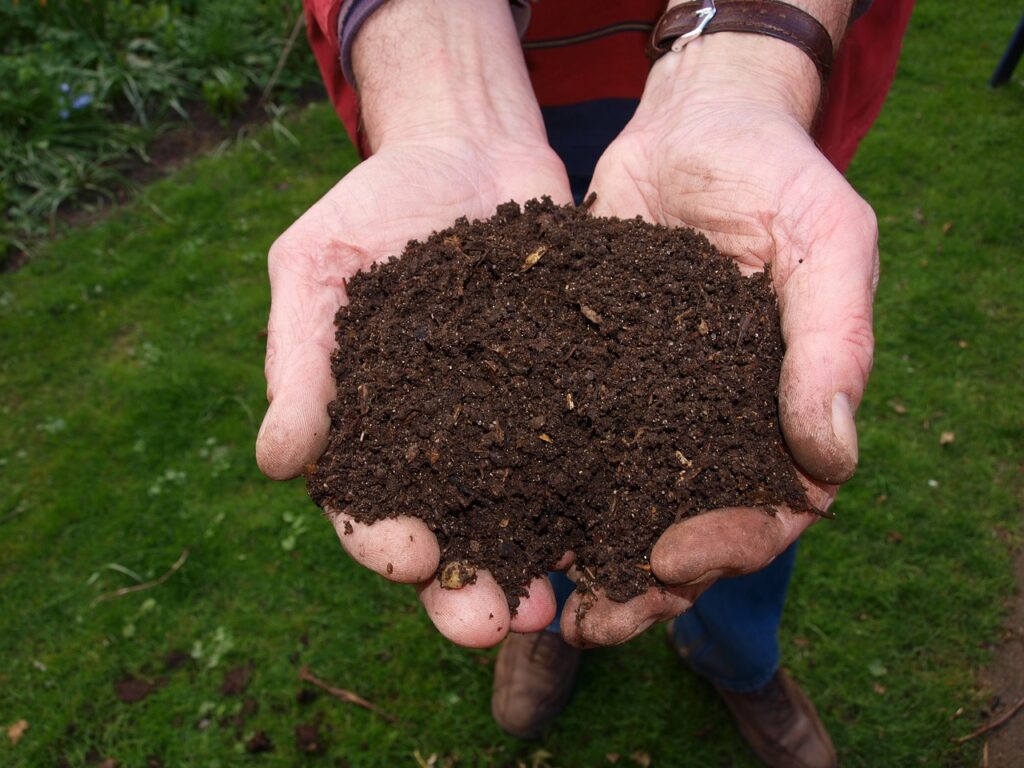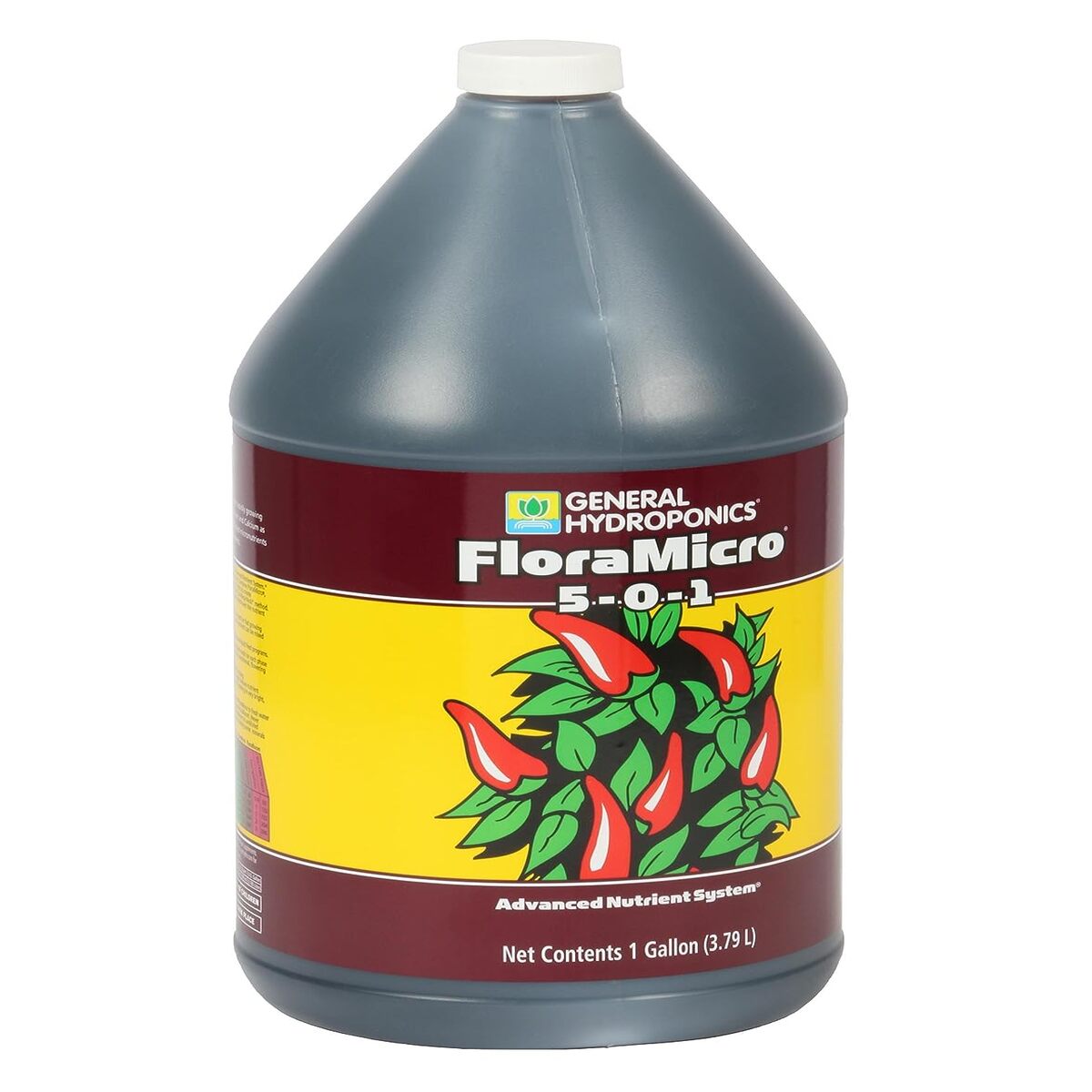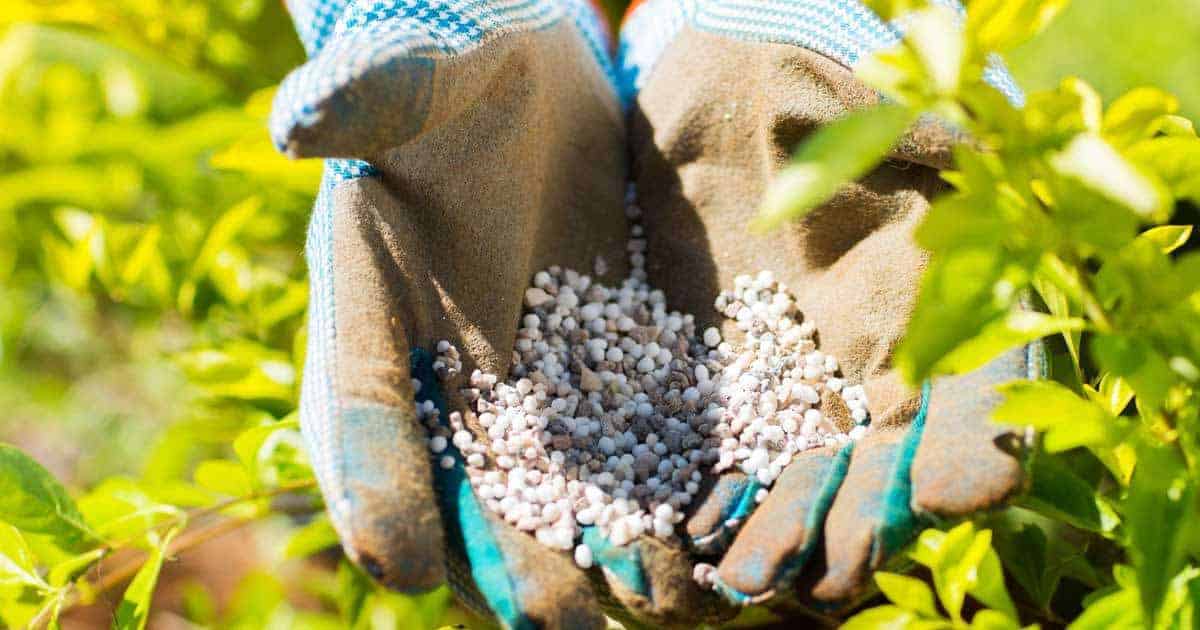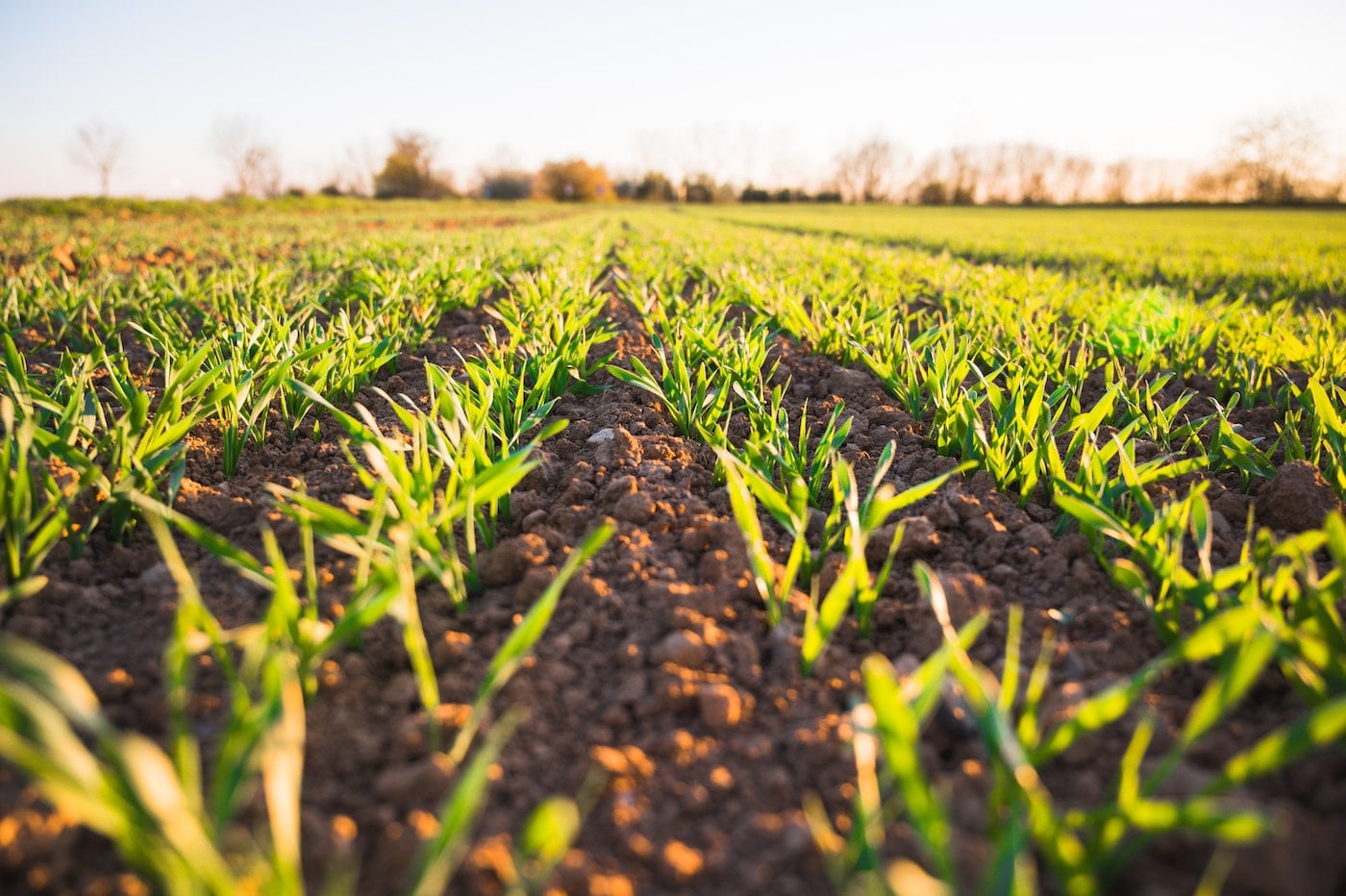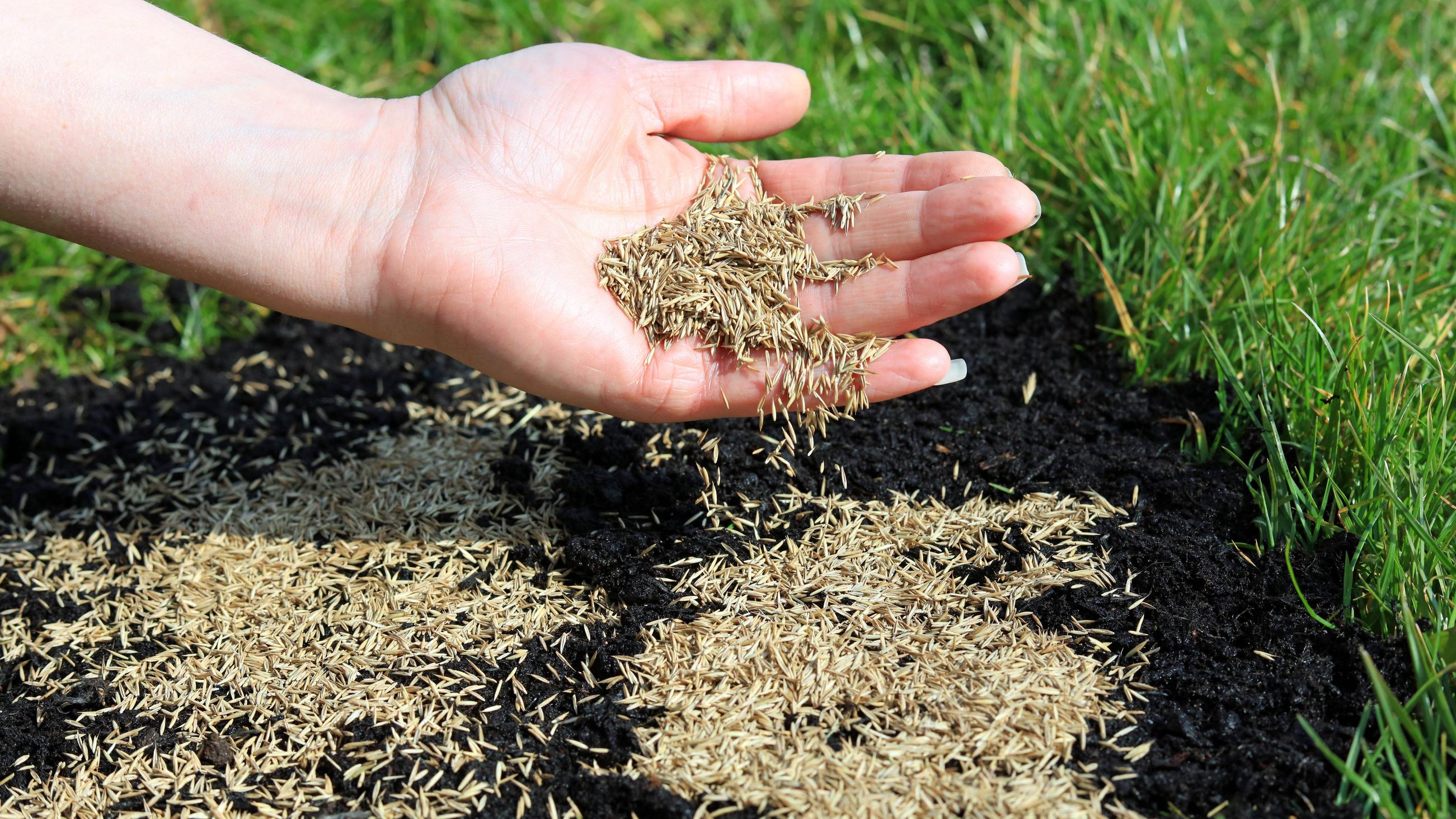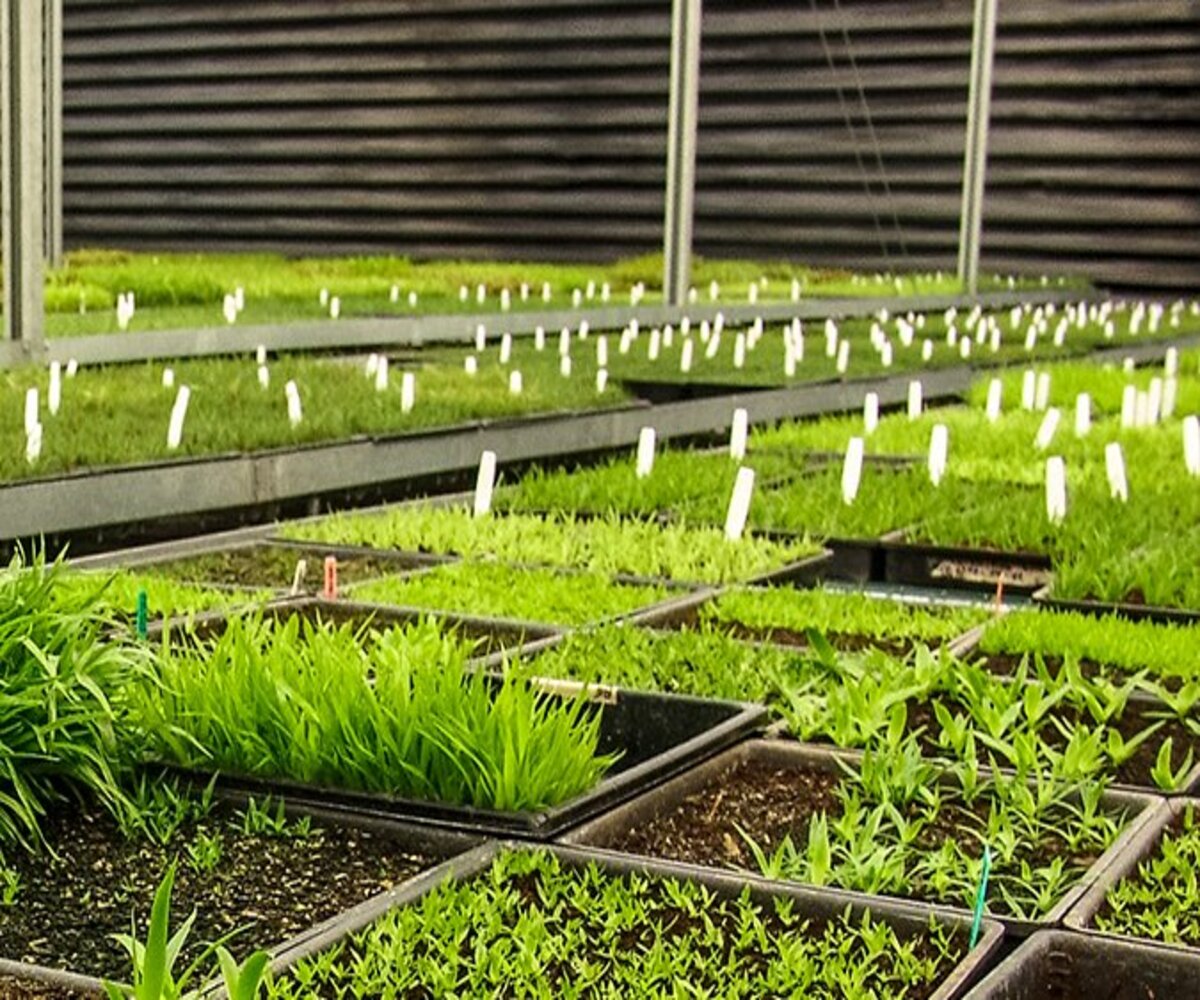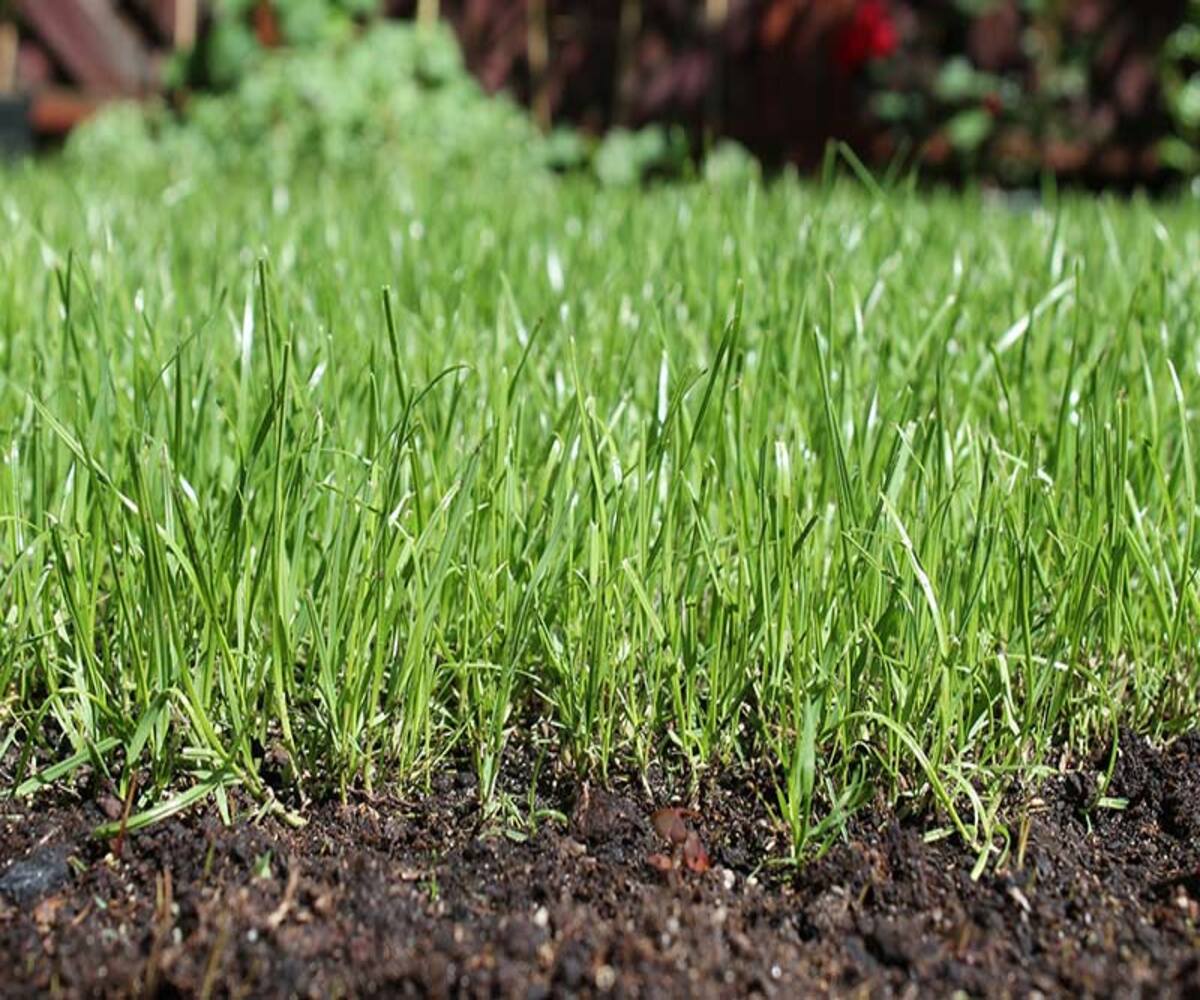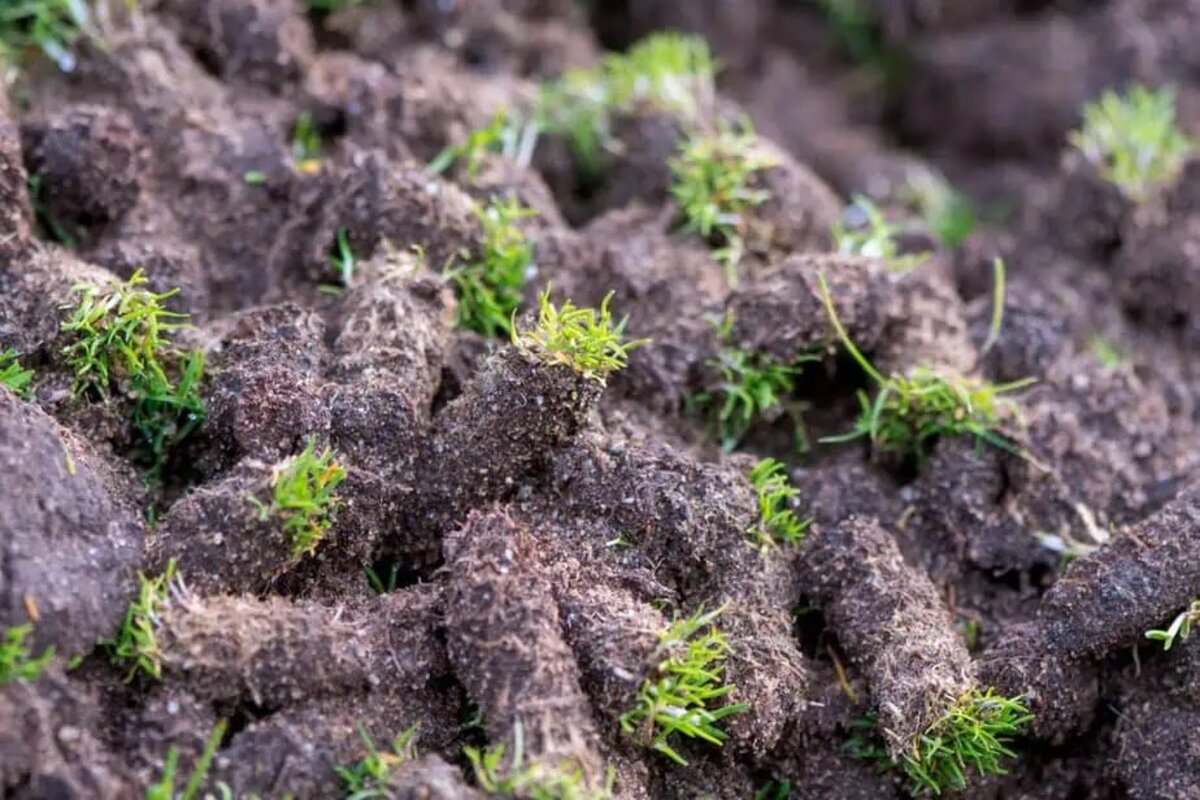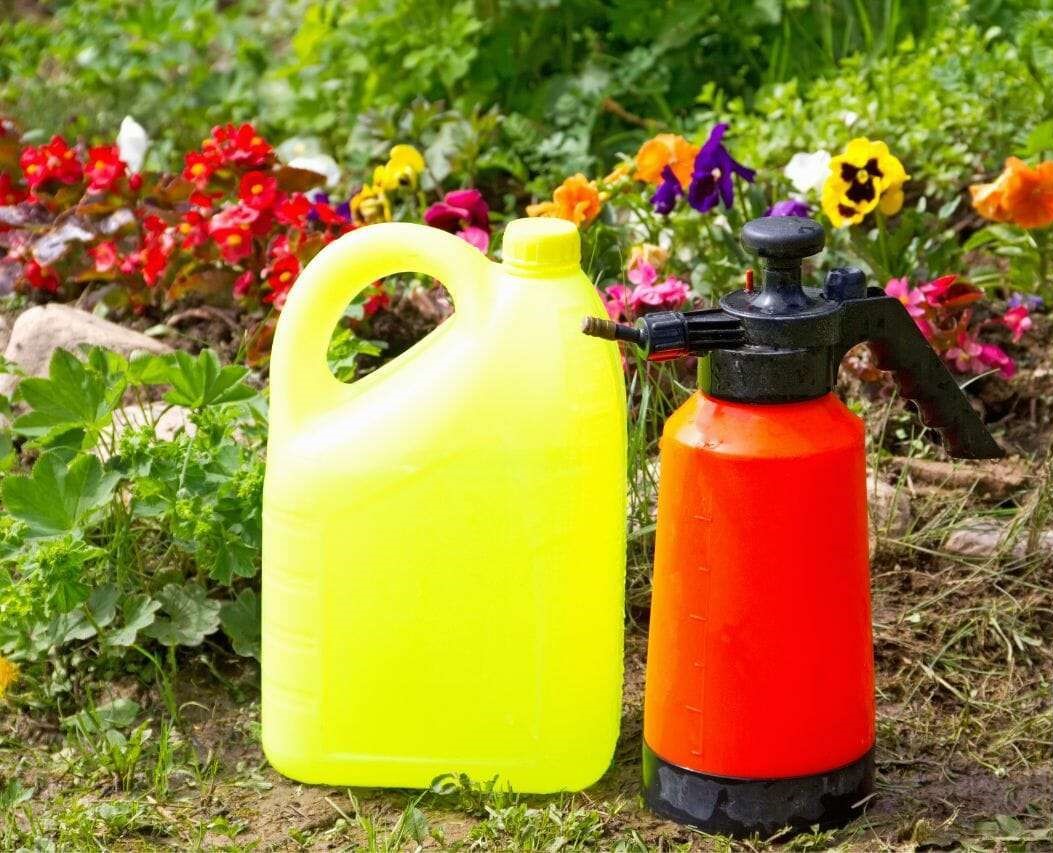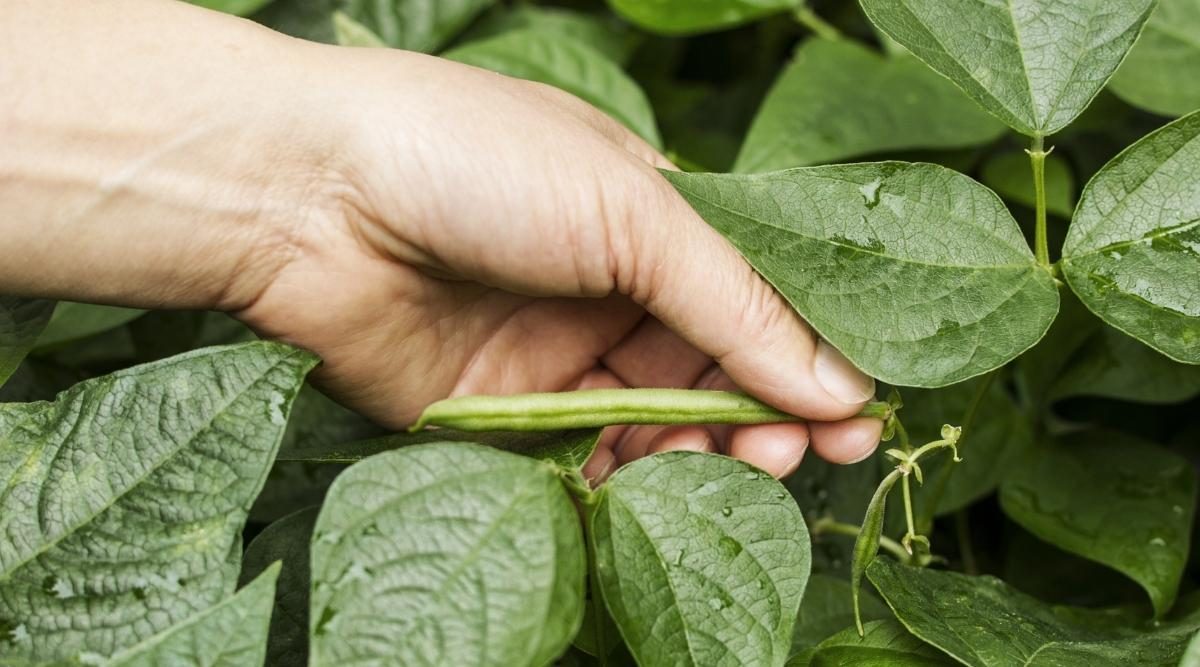Home>Gardening Tips and Tricks>Eco-Friendly Gardening>What Is 17-17-17 Fertilizer Used For
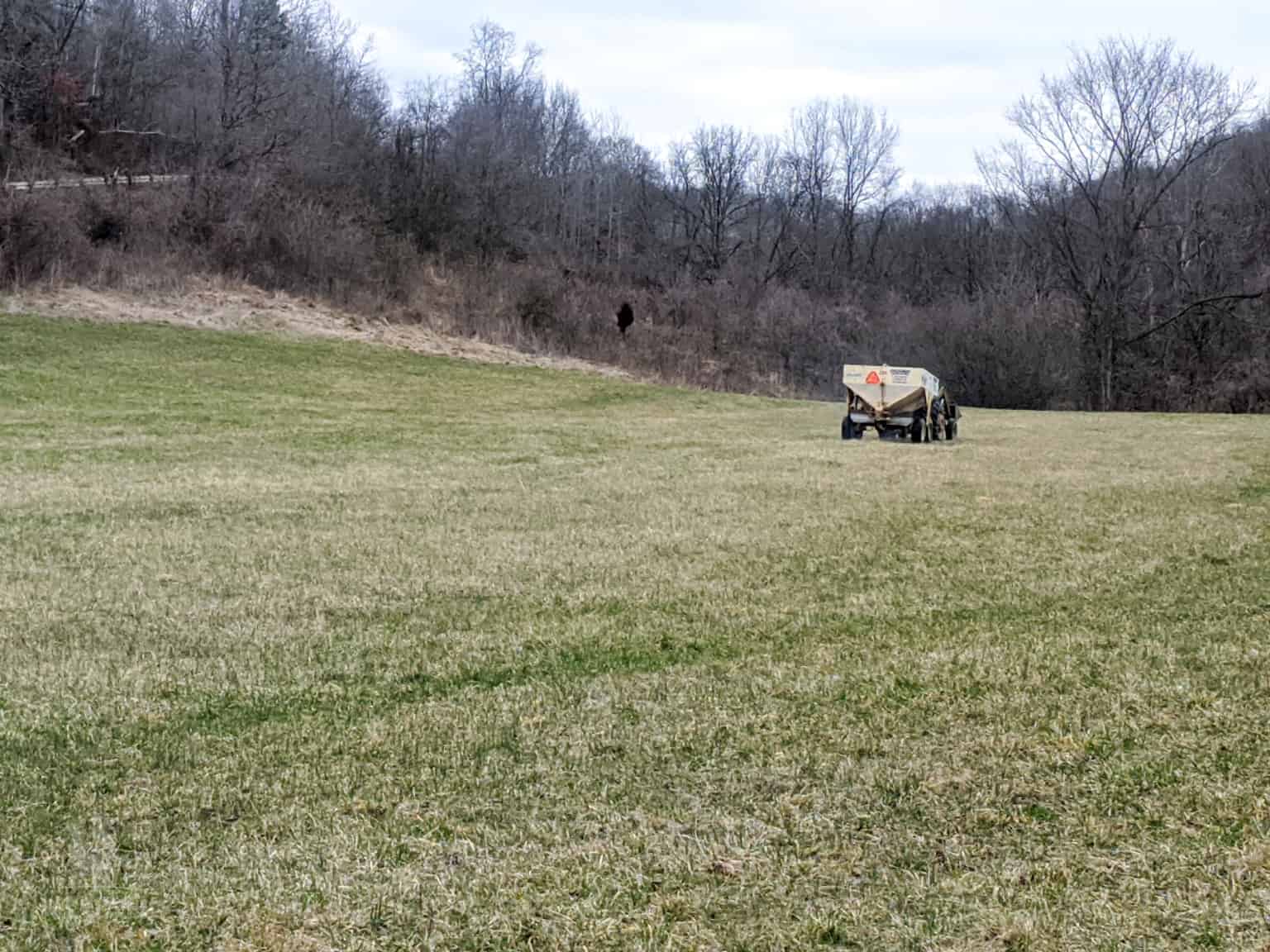

Eco-Friendly Gardening
What Is 17-17-17 Fertilizer Used For
Modified: January 22, 2024
Discover the benefits of using eco-friendly gardening with 17-17-17 fertilizer. Maximize your plant's growth and yield with this versatile fertilizer.
(Many of the links in this article redirect to a specific reviewed product. Your purchase of these products through affiliate links helps to generate commission for Chicagolandgardening.com, at no extra cost. Learn more)
Table of Contents
- Introduction
- What is 17-17-17 Fertilizer?
- Nutrient Composition of 17-17-17 Fertilizer
- The Role of Nitrogen in 17-17-17 Fertilizer
- The Role of Phosphorus in 17-17-17 Fertilizer
- The Role of Potassium in 17-17-17 Fertilizer
- Common Uses of 17-17-17 Fertilizer
- Advantages of Using 17-17-17 Fertilizer
- Precautions and Considerations When Using 17-17-17 Fertilizer
- Conclusion
Introduction
Welcome to the world of eco-friendly gardening! In a time when environmental conservation is of utmost importance, it’s crucial to adopt sustainable practices, even in our own backyards. Eco-friendly gardening is a holistic approach that incorporates techniques and products aimed at reducing our carbon footprint and promoting a healthier planet.
One key aspect of eco-friendly gardening is the use of organic and natural fertilizers, which offer numerous benefits over their synthetic counterparts. Among the many options available, 17-17-17 fertilizer has gained popularity for its balanced nutrient composition and versatility.
In this article, we will explore the wonders of 17-17-17 fertilizer and its applications in eco-friendly gardening. From its nutrient composition to its uses and advantages, we will delve into the world of this eco-conscious fertilizer.
So, let’s jump in and discover why 17-17-17 fertilizer is a go-to choice for eco-friendly gardeners, and how it can help you achieve a thriving and sustainable garden ecosystem.
What is 17-17-17 Fertilizer?
Before we dive into the specifics of 17-17-17 fertilizer, let’s understand what those numbers actually mean. The numbers 17-17-17 represent the percentage of three key macronutrients found in the fertilizer: nitrogen (N), phosphorus (P), and potassium (K).
Nitrogen is crucial for promoting healthy leaf and stem growth, phosphorus supports root development and flower production, and potassium aids in overall plant vitality and disease resistance. With an equal distribution of these three essential nutrients, 17-17-17 fertilizer provides a balanced nutritional boost to plants.
Unlike synthetic fertilizers that rely on manufactured chemicals, 17-17-17 fertilizer is typically derived from organic sources. This makes it an eco-friendly option that aligns with sustainable gardening practices, benefiting both your garden and the environment.
What sets 17-17-17 fertilizer apart from other balanced fertilizers is its versatility. It can be used on a wide variety of plants, from vegetables and fruits to flowers and ornamental plants. This makes it a go-to choice for amateur gardeners and horticultural enthusiasts alike.
Now that we know the basics of 17-17-17 fertilizer, let’s explore the nutrient composition in more detail and understand the role of each macronutrient in promoting plant health and growth.
Nutrient Composition of 17-17-17 Fertilizer
The nutrient composition of 17-17-17 fertilizer demonstrates its balanced formulation, providing plants with a well-rounded supply of essential macronutrients. Let’s take a closer look at the composition and the role each nutrient plays:
- Nitrogen (N): Nitrogen is a vital component for promoting healthy foliage growth. It plays a crucial role in the production of chlorophyll, which is responsible for the green color in leaves. Higher nitrogen levels in the fertilizer support vigorous vegetative growth, lush foliage, and overall plant vitality. This nutrient is especially beneficial for leafy vegetables and lawns.
- Phosphorus (P): Phosphorus is essential for root development, flowering, and fruit production. It aids in energy transfer and encourages strong root systems, leading to improved nutrient absorption and water uptake. Additionally, it promotes the formation of sturdy stems and enhances the overall quality of flowers and fruits. Plants, such as tomatoes and roses, greatly benefit from phosphorus-rich fertilizers.
- Potassium (K): Potassium, also known as potash, is crucial for overall plant health and disease resistance. It regulates various physiological processes, including the efficient use of water, photosynthesis, and enzyme activity. Adequate potassium levels bolster plant immunity and help them withstand stressors like drought, pests, and diseases. Fruits, vegetables, and flowering plants all benefit from potassium-rich fertilizers.
With the ideal balance of nitrogen, phosphorus, and potassium, 17-17-17 fertilizer provides a comprehensive nutrient profile, ensuring the well-being and growth of a wide range of plants.
Now that we understand the macronutrient composition of 17-17-17 fertilizer, let’s explore the specific roles that each nutrient plays in promoting plant health and vitality.
The Role of Nitrogen in 17-17-17 Fertilizer
Nitrogen is a crucial nutrient found in 17-17-17 fertilizer that plays a significant role in promoting healthy plant growth and development. It is often referred to as the “growth nutrient” due to its importance in enhancing foliage growth and overall plant vitality.
One of the primary functions of nitrogen is its role in the production of chlorophyll. Chlorophyll is the pigment responsible for the green color in plant leaves and is essential for photosynthesis. By increasing the nitrogen levels in the soil through the use of 17-17-17 fertilizer, plants can produce more chlorophyll, leading to lush and vibrant foliage.
Nitrogen also plays a crucial role in protein synthesis within plants. Proteins are the building blocks of cells and are vital for various physiological processes. Adequate nitrogen levels ensure the production of proteins, contributing to healthy cell division, enzyme activity, and overall plant growth.
In addition to promoting leafy growth, nitrogen also facilitates the efficient uptake and utilization of other essential nutrients. It helps improve the absorption of micronutrients by maintaining the pH levels in the soil and enhancing the efficiency of nutrient transport within plants.
However, it is important to use nitrogen fertilizer judiciously. Excessive nitrogen levels can lead to an imbalance in the soil, negatively impacting plant health. It can result in rapid leaf growth at the expense of flower and fruit production. Therefore, careful monitoring and proper dosage of 17-17-17 fertilizer containing nitrogen are essential to harness its benefits effectively without causing any harm.
The role of nitrogen in 17-17-17 fertilizer is crucial for promoting healthy leaf and stem growth, improving photosynthesis, and enhancing overall plant vitality. By incorporating 17-17-17 fertilizer into your gardening routine, you can provide your plants with the necessary nitrogen levels to thrive and flourish.
The Role of Phosphorus in 17-17-17 Fertilizer
Phosphorus is an essential nutrient present in 17-17-17 fertilizer that plays a vital role in promoting root development, flowering, and fruit production. Often referred to as the “flowering nutrient,” phosphorus is key to the overall health and success of plants.
One of the primary functions of phosphorus is its involvement in energy transfer within plants. It plays a crucial role in adenosine triphosphate (ATP) synthesis, which is the energy currency of cells. Adequate phosphorus levels in the soil ensure efficient ATP production, providing plants with the energy needed for various metabolic processes.
Phosphorus also plays a critical role in root development and establishment. It aids in the formation of strong and healthy root systems, enabling plants to absorb water and nutrients more effectively. With robust roots, plants can better withstand environmental stressors, such as drought, and establish a firm foundation for overall plant growth.
In addition to its role in root development, phosphorus is essential for promoting flower and fruit production. It contributes to the formation and development of flowers, ensuring their quality, size, and color. The availability of phosphorus is particularly crucial during the reproductive stage of plants, as it supports the development of healthy and abundant blooms.
Furthermore, phosphorus is involved in enhancing the overall vigor and disease resistance of plants. It aids in the synthesis of various compounds, such as nucleic acids and enzymes, which are necessary for essential plant functions and defense mechanisms. By using 17-17-17 fertilizer enriched with phosphorus, you can help strengthen your plants’ immune systems and increase their resilience to pests and diseases.
While phosphorus is crucial for plant growth, it is important to apply it responsibly. Excessive phosphorus can lead to imbalances in the soil and contribute to water pollution in nearby bodies of water. Therefore, it is essential to follow recommended application rates and soil test results when using fertilizers containing phosphorus.
The role of phosphorus in 17-17-17 fertilizer is fundamental to root development, flowering, and fruit production. By incorporating this balanced fertilizer into your gardening routine, you can provide your plants with optimal phosphorus levels, resulting in vibrant blooms, robust roots, and overall plant success.
The Role of Potassium in 17-17-17 Fertilizer
Potassium is a vital nutrient found in 17-17-17 fertilizer that plays a crucial role in promoting overall plant health and disease resistance. Known as the “plant’s powerhouse nutrient,” potassium is involved in numerous physiological processes that contribute to the well-being and vitality of plants.
One of the primary functions of potassium is its role in regulating water movement within plants. It helps maintain the osmotic balance, allowing plants to efficiently absorb and transport water. This is particularly important during times of drought or water stress, as potassium helps plants withstand these challenging conditions by reducing water loss and maintaining proper cell turgor.
Potassium also plays a significant role in photosynthesis, the process by which plants convert sunlight into energy. It is involved in the opening and closing of stomata, the tiny pores on plant leaves, which regulate gas exchange. By ensuring the proper functioning of stomata, potassium facilitates the uptake of carbon dioxide and the release of oxygen, supporting efficient photosynthesis.
In addition to its role in water regulation and photosynthesis, potassium also helps activate enzymes within plants. Enzymes are catalysts that drive various biochemical reactions necessary for growth and development. Potassium aids in the activation of over 60 enzymes, which are involved in processes such as protein synthesis, carbohydrate metabolism, and disease defense.
Furthermore, potassium enhances overall plant health and disease resistance. It strengthens cell walls, making plants more resistant to pests and diseases. It also promotes the production of secondary metabolites, such as antioxidants, that help protect plants from environmental stressors and promote their longevity.
Using 17-17-17 fertilizer enriched with potassium ensures that your plants receive adequate levels of this essential nutrient. By incorporating potassium into your gardening routine, you can enhance the overall vigor and resilience of your plants, leading to healthier growth and increased tolerance to environmental challenges.
However, it is important to note that excessive potassium application can lead to imbalances in the soil and may interfere with the uptake of other essential nutrients. A soil test is recommended to determine the appropriate potassium levels and avoid over-application.
The role of potassium in 17-17-17 fertilizer is crucial for maintaining water balance, promoting photosynthesis, activating enzymes, and enhancing overall plant health and disease resistance. By incorporating this balanced fertilizer into your gardening practices, you can provide your plants with the essential potassium they need to thrive and flourish.
Common Uses of 17-17-17 Fertilizer
17-17-17 fertilizer is a versatile product that finds various uses in eco-friendly gardening practices. Its balanced nutrient composition makes it suitable for a wide range of plants and gardening applications. Let’s explore some of the common uses of 17-17-17 fertilizer:
- Vegetable Gardens: 17-17-17 fertilizer serves as an excellent choice for nourishing vegetable crops. The balanced nutrient ratio promotes healthy leaf growth, robust root development, and bountiful yields. Whether you’re growing tomatoes, lettuce, peppers, or any other vegetable, 17-17-17 fertilizer can provide the essential nutrients needed for optimal growth and production.
- Flower Beds: Flowering plants benefit greatly from 17-17-17 fertilizer, as the balanced nutrient composition supports flower formation and vibrant blooms. Whether you’re growing roses, petunias, or marigolds, incorporating this fertilizer into your flower beds can enhance the quality and quantity of your blooms.
- Turf and Lawns: 17-17-17 fertilizer is also an excellent choice for maintaining healthy and lush lawns. The balanced nutrients promote vigorous leaf growth, ensuring a thick and green lawn. Whether you’re establishing a new lawn or maintaining an existing one, applying 17-17-17 fertilizer can help keep your turf in top condition.
- Container Plants: If you have plants in pots or containers, 17-17-17 fertilizer can provide the necessary nutrients to support their growth. Container plants often require regular fertilization, as the nutrients in the potting mix can deplete over time. Applying 17-17-17 fertilizer ensures that your container plants receive a consistent supply of essential nutrients to thrive.
- Indoor Houseplants: Even indoor houseplants can benefit from 17-17-17 fertilizer. While they may not have the same nutrient needs as outdoor plants, periodic fertilization with a balanced formula can help keep your indoor plants healthy and vibrant.
Regardless of the specific application, it is important to follow the recommended dosage and frequency of application for 17-17-17 fertilizer. Proper use ensures that plants receive the right balance of nutrients without risking over-fertilization, which can lead to nutrient imbalances and potential harm to plants and the environment.
By incorporating 17-17-17 fertilizer into your gardening routine, you can provide your plants with the necessary nutrients for healthy growth, abundant blooms, and vibrant foliage. Whether you’re tending to an extensive garden, a small container garden, or a few houseplants, this versatile fertilizer can help you achieve the successful and thriving garden you desire.
Advantages of Using 17-17-17 Fertilizer
Using 17-17-17 fertilizer in your gardening practices offers several advantages that contribute to the overall health and success of your plants. Let’s explore some of the key benefits of using this balanced fertilizer:
- Balance of Nutrients: One of the major advantages of 17-17-17 fertilizer is its balanced composition of nitrogen, phosphorus, and potassium. This balanced ratio ensures that plants receive an equal supply of these essential macronutrients. This balanced nutrition supports healthy foliage growth, root development, flower production, and overall plant vitality.
- Versatility: 17-17-17 fertilizer is versatile and can be used on a wide range of plants, including vegetables, fruits, flowers, lawns, and container plants. This makes it a go-to choice for gardeners and allows for more flexibility in garden maintenance. Whether you have a diverse garden or different types of plants, 17-17-17 fertilizer can meet their nutritional needs.
- Promotes Plant Growth: The nutrients present in 17-17-17 fertilizer play critical roles in promoting healthy plant growth. Nitrogen stimulates lush foliage, phosphorus enhances root development and flower production, and potassium supports overall plant health and disease resistance. By providing these essential nutrients, 17-17-17 fertilizer fosters vigorous growth and helps plants reach their full potential.
- Eco-Friendly Option: 17-17-17 fertilizer is often derived from organic and natural sources, making it an eco-friendly choice for sustainable gardening practices. Using organic fertilizers reduces the reliance on synthetic chemicals, minimizes environmental impact, and promotes a healthier and more balanced ecosystem in your garden.
- Easy Application: Applying 17-17-17 fertilizer is generally straightforward and can be done using various methods, such as broadcasting, top-dressing, or incorporation into potting mixes. The ease of application makes it accessible to both novice and experienced gardeners, ensuring that plants receive the necessary nutrients without hassle.
It is important to note that while 17-17-17 fertilizer offers numerous advantages, proper application and dosage are essential. Following the recommended guidelines and avoiding over-fertilization will prevent nutrient imbalances and minimize any potential negative impact on plants and the environment.
Overall, utilizing 17-17-17 fertilizer in your gardening practices provides balanced nutrition, versatility, and environmental benefits. It supports healthy plant growth, promotes vibrant blooms, and contributes to a thriving and sustainable garden ecosystem.
Precautions and Considerations When Using 17-17-17 Fertilizer
While 17-17-17 fertilizer offers numerous benefits, it is important to consider certain precautions and guidelines to ensure safe and effective use. Here are some key considerations when using 17-17-17 fertilizer:
- Dosage: Follow the recommended dosage instructions provided by the manufacturer. Applying too much fertilizer can lead to nutrient imbalances, which can be detrimental to plant health and may contribute to water pollution.
- Timing: Apply the fertilizer at the appropriate time for optimal results. Different plants have varying nutrient requirements during different growth stages. For example, vegetables may benefit from a balanced fertilizer during the planting stage, while flowering plants may require additional fertilization during their blooming period.
- Watering: Water plants thoroughly after fertilizer application. This helps dissolve and distribute the nutrients effectively, ensuring that they reach the plant roots and are available for absorption. Proper watering also helps prevent fertilizer burn and minimizes nutrient loss due to leaching.
- Soil Testing: Conduct a soil test to determine the nutrient levels in your soil before applying fertilizer. This will provide insights into the specific nutritional requirements of your plants and help you adjust the application rate accordingly. Soil testing can also help avoid over-fertilization and reduce potential environmental impact.
- Environmental Impact: Be mindful of the environment when using any fertilizer. Avoid applying 17-17-17 fertilizer near water bodies to prevent nutrient runoff and water pollution. Follow local regulations and guidelines to minimize any potential adverse effects on ecosystems and wildlife.
- Storage and Handling: Store the fertilizer in a cool, dry place away from children and pets. Follow the manufacturer’s instructions for safe handling, and wear appropriate protective gear such as gloves and goggles when necessary.
By considering these precautions and following the recommended guidelines, you can ensure the safe and effective use of 17-17-17 fertilizer in your gardening practices. Remember, responsible fertilizer application helps protect the environment, safeguard plant health, and promote sustainable gardening.
Conclusion
In the world of eco-friendly gardening, 17-17-17 fertilizer has emerged as a versatile and effective choice. With its balanced nutrient composition of nitrogen, phosphorus, and potassium, this fertilizer provides a holistic approach to plant nutrition, promoting healthy growth, vibrant blooms, and overall plant vitality.
With its balanced formulation, 17-17-17 fertilizer is suitable for various gardening applications. Whether you have a vegetable garden, flower beds, a lawn, or container plants, this fertilizer can meet the diverse nutritional needs of your plants.
One of the key advantages of using 17-17-17 fertilizer is its eco-friendly nature. Derived from organic and natural sources, it aligns with sustainable gardening practices, minimizing the use of synthetic chemicals and promoting a healthier garden ecosystem.
However, it is important to use 17-17-17 fertilizer responsibly. Following dosage recommendations, considering the timing of application, conducting soil tests, and being mindful of the environment are crucial aspects to ensure safe and effective use.
By incorporating 17-17-17 fertilizer into your gardening routine, you can provide your plants with the essential nutrients they need to thrive. Whether you’re a seasoned gardener or just starting out, this balanced fertilizer can help you achieve a flourishing and sustainable garden that you can be proud of.
So, embrace the benefits of 17-17-17 fertilizer and let it nourish your plants, empower your gardening endeavors, and contribute to a greener and more vibrant world.
